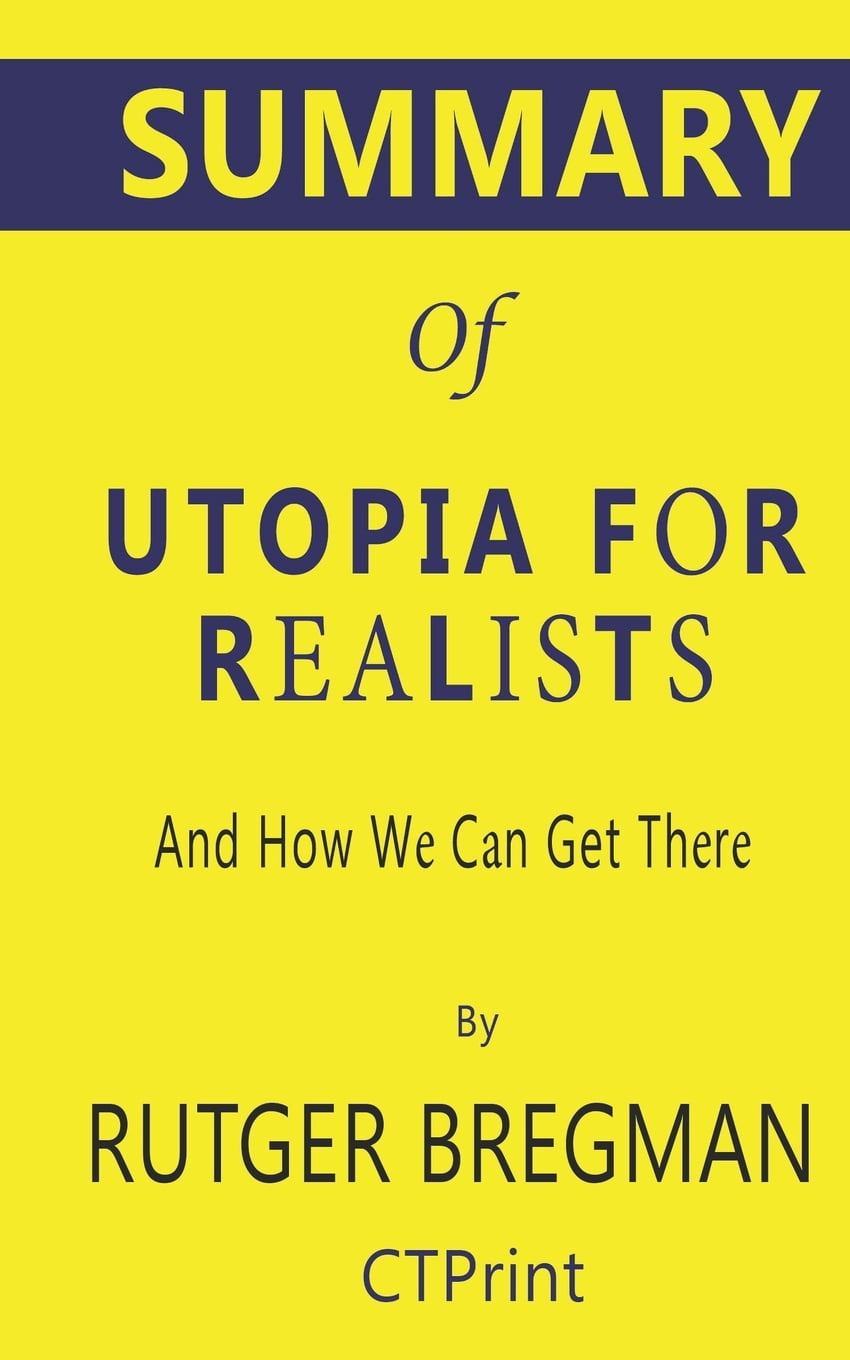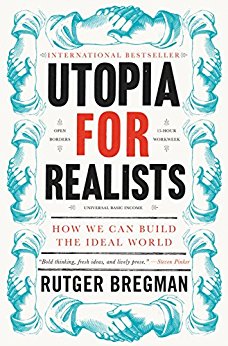

Given current attitudes, the most radical chapter is the one on opening borders and allowing more immigration. “See it as a dividend on progress, made possible by the blood, sweat and tears of past generations.” He writes about the possibilities of ending poverty, a shorter working week and new measures of progress. A basic income is “what capitalism ought to have been striving for all along” in Bregman’s view. There’s a lot of energy around the Basic Income at the moment, from all sorts of different quarters. Some of the big ideas covered are quite familiar. Some of them look unlikely from here, but as he reminds us several times, utopian dreams of the past are taken for granted now – such as democracy, the end of slavery or the welfare state. It’s time to use our imaginations again, and Bregman’s book sets out a series of big visions.

Politics is on the defensive, while inequality and environmental decline threaten what we already have. “Modern progress has trumped the wildest imaginings of our ancestors” writes Bregman, but ideas about the future have stalled. There is, it would appear, a real appetite for utopian thinking. First published in Dutch in 2014, Utopia for Realists – and how we can get there has been reprinted in 23 languages and is a solid bestseller.


 0 kommentar(er)
0 kommentar(er)
